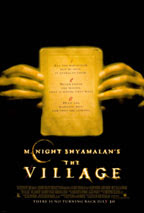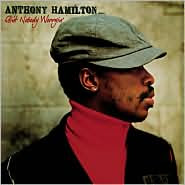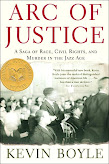Through out its history America has been given numerous opportunities to start over and establish the Good Society. Many administrations have tried to establish their vision of the Good Society, and many administrations have failed to make their vision a reality. The common fallacy in their visions is in the notion that the Good Society must be enforced to be successful. The Good Society, however, cannot be enforced. The true Good Society will become a permanent reality only when a society freely chooses to be earnest seekers and non-violent defenders of peace, justice and equality.
One of the core elements of the Good Society is peace. The Good Society does not have an imperialistic mindset, which America had during the late 19th Century. America is not the only nation to have the desire to rule the world. Some nations have been on the brink of making their desire a reality. The Good Society understands that the imperialistic desire to rule the world will eventually bring even the greatest of nations to ruin. The Good Society does not massacre an entire race of people, as America decimated the Native Americans, to obtain fresh farmland. The Good Society does not force the survivors of those massacres unto tiny reservations in order to expand its borders. The Good Society is content with its borders and at peace with its neighbors. It has no desire to be a global power. It realizes that imperialistic gain is always at the expense of another nation’s lost. The Good Society is not like past nations who sought to build on the ashes of those nations they destroyed. The Good Society instead seeks to unite the world by building bridges of peace.
The Good Society does not use violence to achieve peace. Through out history America has thought the only way to achieve peace is by destroying the enemy. It is one of the greatest paradoxes when a nation tries to achieve peace through war. Civil Rights leader Martin Luther King Jr. could see better than anyone the fallacy in a war policy that seeks peace. He believed all of life to be interrelated. In an interrelated world King believed it was impossible to separate the means a society uses and the end it seeks. He saw the means as the seeds and the ends as the trees. You cannot plant seeds of war and expect a tree of peace to spring forth. The Good Society believes, as King did, that peace is not just some distant goal we seek, but it is also the means by which we seek our goal. The Good Society cannot exist in a society where vengeance and hate abound. The Good Society can only survive when its means are a peace that produce compromise and reconciliation.
In the Good society intense nationalism is a threat to the peace that is essential. War World II serves as a prime example of what the Good Society is not to embody. The war was painted as a battle between the good Allied forces against the evil Axis forces. The Good Society does not partake in the myth that in war one nation is ultimately good and their adversary is ultimately evil. The Good Society holds to the belief that all nations who engage in war are evil in some form. It does matter to the Good Society the quantity of evil actions because one ounce of evil is too much. Vietnam serves as another example of war painted in the moralistic terms of good and evil. The Good Society makes no distinction between the evil actions of Viet Cong soldiers and the evil consequences of napalm bombing. If the Good Society is to be true to itself, it can only overcome evil with good. It must be careful not to fall into the naive trap, as America did in WW II and Vietnam, that it is somehow so good that it is incapable of evil. In the end the Good Society must abstain from the necessary evil of war and always seek the necessary good of peace.
Another core element to the Good Society is justice. In the Good Society true justice is color blind. A criminal in the Good Society is judged on the seriousness of the crime, not the color of his or her skin. American courts have always struggled to separate to color of the suspect and the alleged crime committed. For most of American history it was the African American who was convicted in spite of evidence that proved his or her innocence. In recent times it is Arab Americana whose conviction has everything to do with skin color and nothing to do with the fact they may actually be innoence. The Good Society, however, offers justice to anyone who seeks is. It does not deny anyone access to legal representation and does not detain anyone who has not been charged with a crime. The Good Society determines guilt with evidence, not with assumptions. The Good Society does not intend to be a perfect society, but in order to be a Good Society it must provide colorblind justice.
True justice must also provide economic justice. Many in corporate America during the Gilded Age adopted the economic philosophy of “Social Darwinism”. Corporate America took Darwin’s biological theory of “Survival of the Fittest” and put it into practice in their everyday business transactions. It was longer considered immoral to muscle out your competitor because it was seen as a natural consequence of the economic order. Greed was not only good during the Gilded Age, it was encouraged.
The Good Society does not practice greed in any form. It does not participate in the injustices that greed produces. There is no canyon between rich and poor like there was between Carnegie and the rest of America. In the Good Society 1% of the total population does not own the majority of wealth as is the case in America today. The Good Society holds a company like Enron to account for its actions against their employees and customers. The business of the Good Society is not to make a profit by any means necessary. The business of the Good Society is to provide economic justice for those who are so easily trampled underneath by the Industrial machine. True justice is not for sale in the Good Society. True justice does need to be color blind, but it is not enough. The Good Society knows that if justice can be bought, then the color of your skin will matter less than the color of your money.
The Good Society does not preserve true justice through war, but through law. History is filled with nations who believed that war was an effective way to preserve justice. They assume if an unjust nation is not confronted with force, then the injustice will spread. The Good Society must learn from the mistakes of past nations. War is an action taken a political entity. Law enforcement, however, does not presume all to be guilty, but justly holds individuals to account for their actions. War is always imprecise and the violence it creates is always general. There are no distinctions made in war for both civilian and militant are killed in war. Law enforcement is a direct action taken against specific individuals. War is less concerned with procedure than results. Law enforcement must stick to procedure to be effective. The Good Society does not engage in terrorist-like methods to preserve justice. War has its own momentum which few can stop. Law enforcement has its momentum controlled by a system of checks and balances. Through law the Good Society preserves true justice not only for the individual, but for the entire community as well. The Good Society realizes war does not end injustice, buy only promotes it by destroying everything in its path. The Good Society will find true justice in the law as those who engage in war continue to search for it.
The final core element of the Good Society is equality. The Good Society desires to give everyone an equal opportunity. In the Good Society everyone is provided with the best possible education to ensure an equal starting point. The Good Society will also provide an equal opportunity to work which allows one to provide for his or her family. The Good Society is not a communist state with the naïve belief that everyone is equal in every aspect of life. Though people have unequal abilities, they must still be given an equal opportunity to learn and discover their abilities. A person’s ability may be greater, but his or her opportunity will remain equal.
American history is full of great contradictions. In the Declaration of Independence the founding fathers state, “all are created equal”. These words were suppose to apply to all men and women, but the oppressive institution of slavery was allowed to continue for almost a hundred years after these words were written. Women could own property, but were not allowed to vote on property taxes. This nauseating double speak of American government is best described by Martin Luther King Jr. when he says, “ These men so often have a high blood pressure of words and an anemia of deeds”. The Good Society is tired of these contradictions and will seek to embody the words of the founding fathers. No one in the Good Society is 3/5 a person as the African American was in Colonial America. The Good Society will equally respect every human life in all circumstances. Whether it be man or woman, black or white, rich or poor, friend or foe; every life in the Good Society has dignity and worth. The Good Society will not speak in contradictions that a man can be both equal and a slave. The Good Society will speak in truth the reality that all men are created equal.
The three core elements of the Good Society are deeply interrelated. You cannot have peace unless you embrace justice. You cannot have justice unless you uphold equality. The core elements of the Good Society set the foundation upon which the community will be built. The key to survival for the Good Society is not to protect a false sense of “national security”. It will only endure by adopting a policy of peace. The Good Society cannot expect to last if it justifies the use of torture as a means to protect its citizens. It can only protect its citizens by embracing justice. The Good Society cannot continue with the economic mindset of “Survival of the Fittest”. It can only remain by upholding the equality of all men and women.
Even with these core elements, the Good Society is still dependent on something else. It is dependent on whether the society will choose to seek and defend peace, justice and equality. The government of both Reconstruction and the Civil Rights movement believed that they had to create to laws to enforce the ideals of the Good Society. The problem, however, is that a law which desegregates schools does not remove the hate from a person’s heart. You can’t force some one to live in the Good Society. A person’s free will negates to the notion of an involuntary acceptance of the Good Society. If people are forced against their will to choose something, then it isn’t real. Many empires of the past believed in the myth that in order to become a great society one must practice war, discrimination and unfairness. The reality of the Good Society, however, is that if a society is to exist at all, then it must observe peace, justice, and equality.
Read more...



